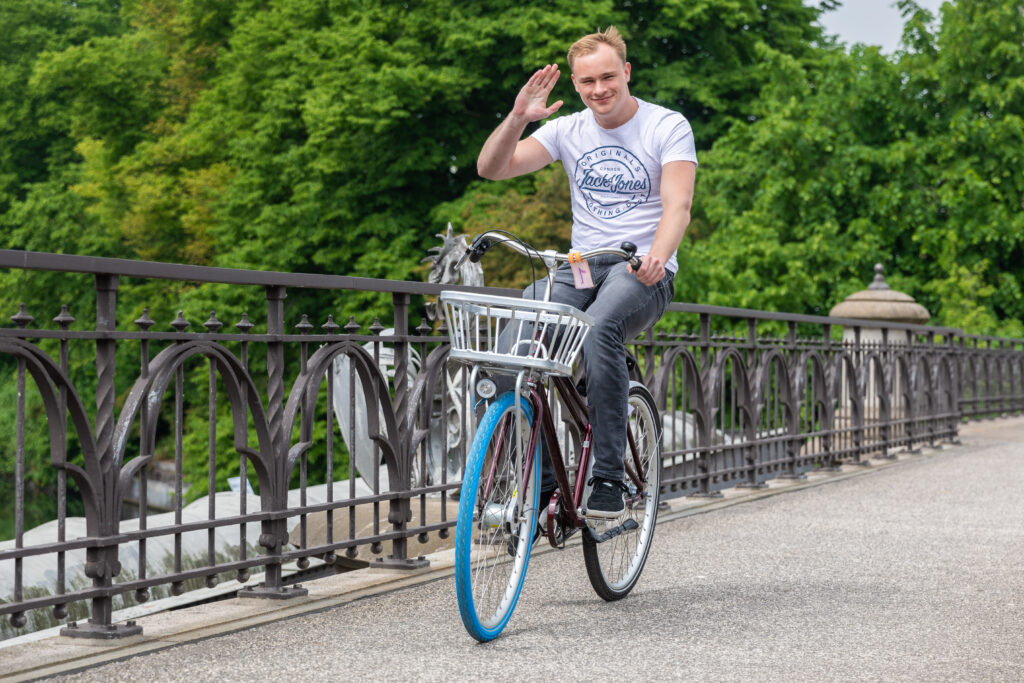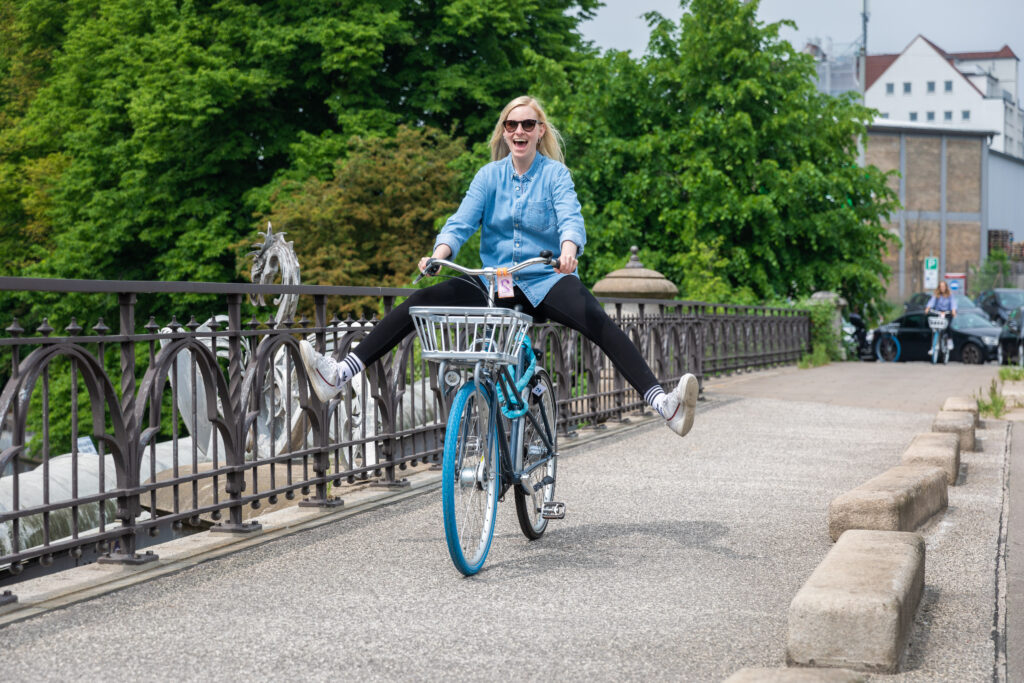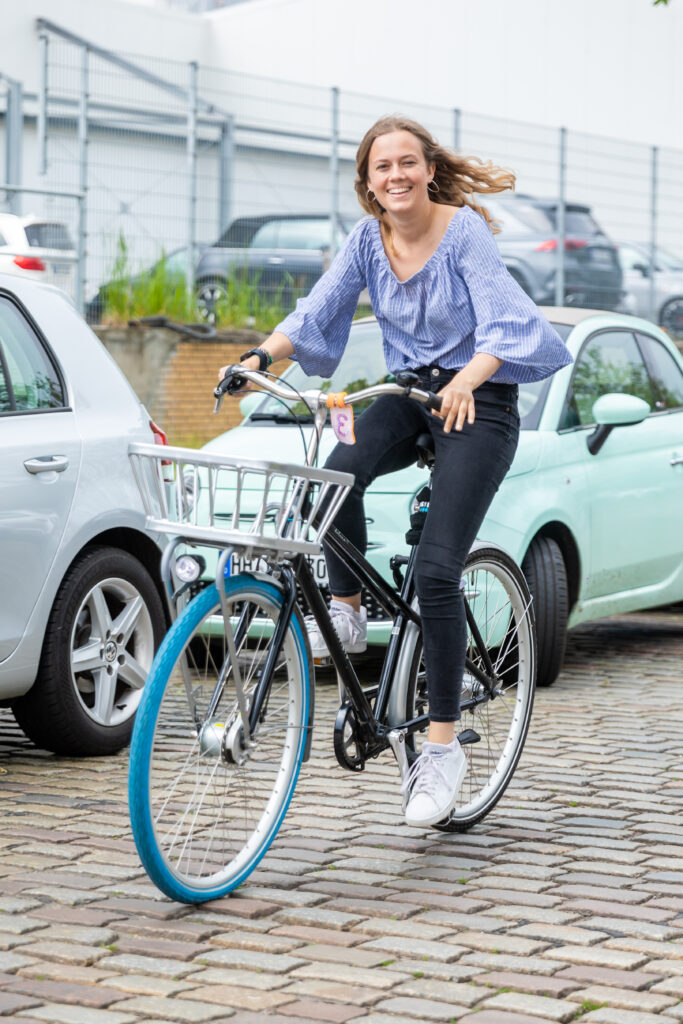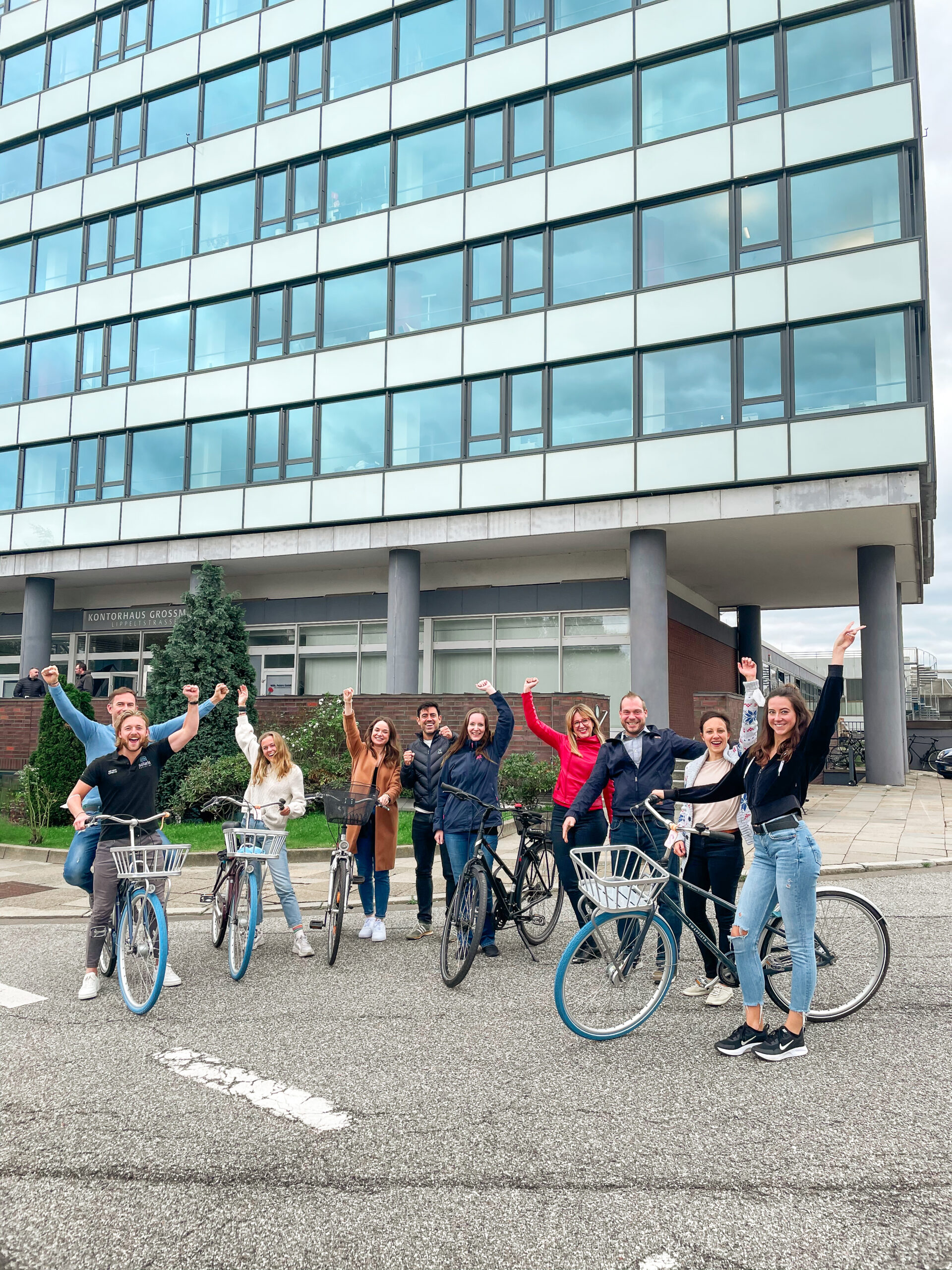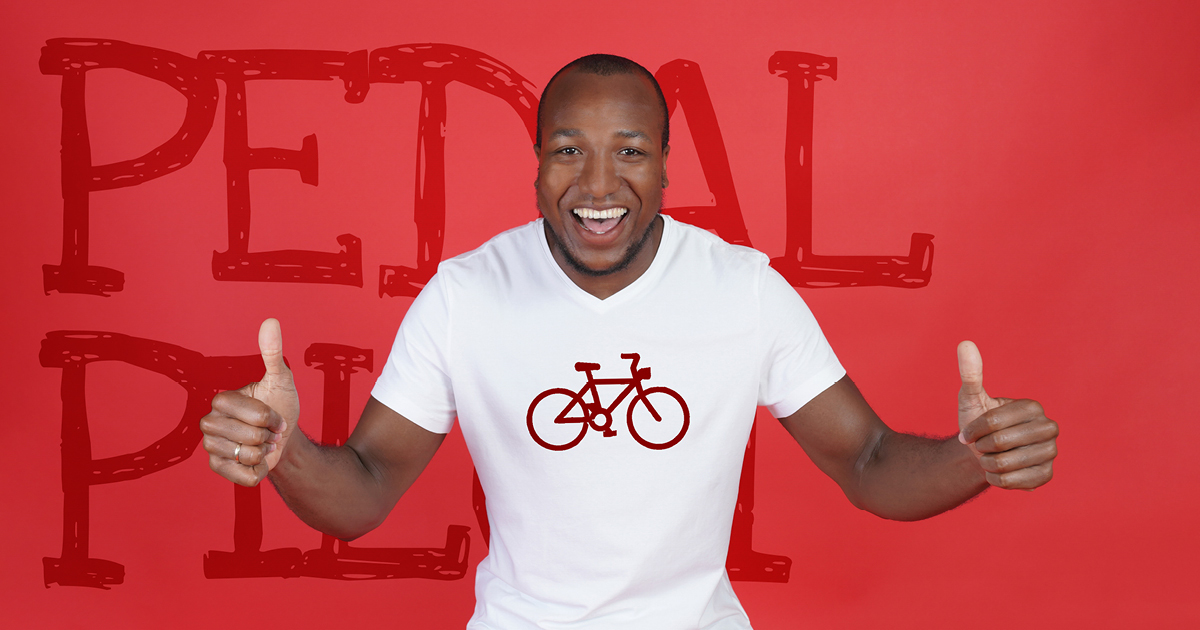But cycling is also very good for your budget: The average selling price for bicycles in 2020 was 1,279 euros.[1] And that already includes e-bikes and expensive racing bikes! If you only need a decent bike suitable for everyday use, you can get it for just a few hundred euros. Once you have the bike, it will last for years and incur hardly any further costs. A study from 2015 even came to the conclusion that cycling generates a social benefit of 0.18 euros per kilometre.[2] In other words, negative costs. How is that possible? Simple: cycling saves a lot of climate-damaging CO2 and, above all, is so healthy that it massively reduces healthcare costs – by around 24 billion euros a year in the EU alone.
Some might say that all this sounds a bit too idyllic, old-fashioned, like village life in the countryside. It does indeed. But that’s probably the benefit of cycling that is most often overlooked. If you live in a city where most people drive cars and then go to a city where people use bikes most of the time, you suddenly feel like you are on vacation. Everything is slower, more relaxed and, above all, more human. Due to the fact that you can see other people’s faces while riding your bike, everybody acts in a more friendly way and gets to their destination much more calmly (and usually faster anyway). So cycling is also good for social cohesion. Then, at some point, a positive feedback loop begins: the higher the demand for safe bike paths, the faster they are expanded, and the more safe bike paths exist, the more people use them.
And there is one more thing which unites all cyclists: They collectively hold the record for efficiency. No machine or animal needs as little energy to move as a person on a bicycle. That makes cycling good for self-confidence as well!
„Equipped with [a bicycle], man outstrips the efficiency of not only all machines but all other animals as well.” – Ivan Illich, Toward a History of Needs [3]
So biking is good for almost everything! That’s why we organize a bike challenge every summer at our company, which not only keeps our colleagues fit, but also puts a smile on their faces – our photos prove it! And of course, the climate benefits. From June to August 2021, we cycled 13,085 km and thus saved 2.58 t of CO2.

